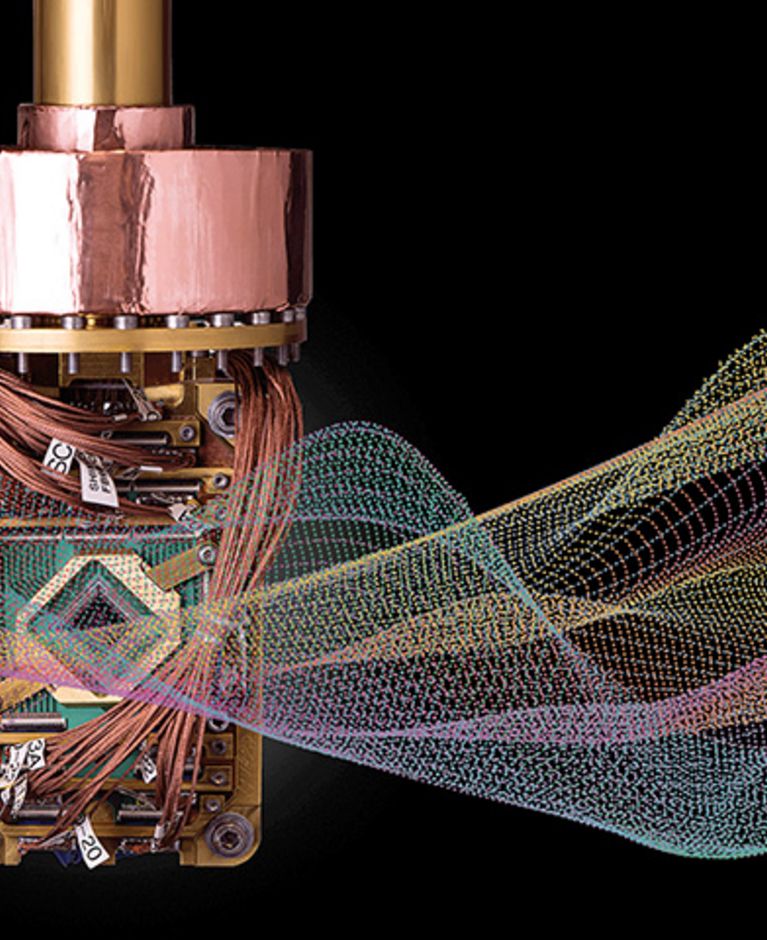
Quantum Communication
Quantum communication enables secure data transmission on an unprecedented scale by exploiting the laws of quantum mechanics.
The selection of quantum states is used to create key protocols for secure data transfer. Quantum encryption is thus not based on mathematical assumptions, but on physical laws. Quantum states are very fragile, however, and precise measurement is complicated, so transfer (within individual chips or across great distances) entails significant technical challenges.
Helmholtz is currently focusing on quantum communication systems in aerospace applications and researching fundamental questions of quantum encryption. The goal is to make worldwide quantum cryptographic connections possible in the future. The vision is a quantum communication network – a quantum Internet – in which terrestrial and space-based systems are interconnected via quantum repeaters, allowing unprecedented communication security.